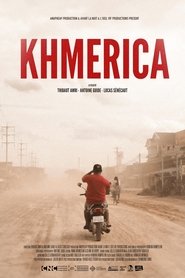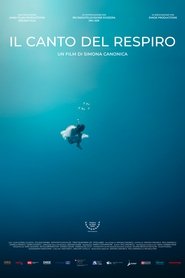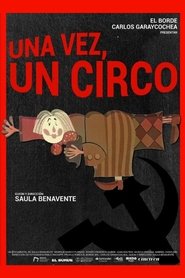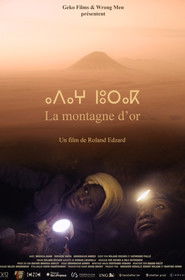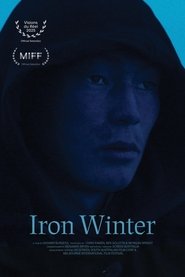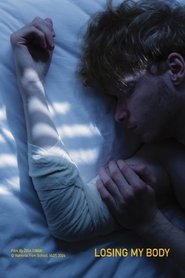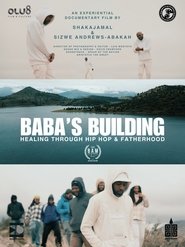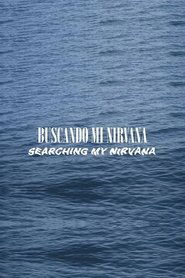New Documentary Movies on Pantaflix - Page 377
-
Khmerica
2025
Khmerica
2025
Joker, Kookie and Djumbo are “Khmericans”: Cambodian refugees who grew up in the United States and were deported back to Cambodia after serving a prison sentence. -
The Badwater 135: ULTRA - The Long Run
2025
You’re in the middle of Death Valley. It’s 120°F (48°C), the sun is blazing hot and there’s not a single tree to hide under. You are covered from head to toe in white apparel in an attempt to conceal yourself from the scorching sun. The only sounds you can hear are those of your own footsteps along the burning asphalt. When the wind picks up, sand whips any exposed part of your body like needles. Welcome to the Badwater 135. A grueling 135 mile race that starts at Badwater Basin - the lowest point in the U.S (-282 feet below sea level) and ends at the highest point in the contiguous United States, Mount Whitney. That’s three mountain ranges the runners have to cross before reaching the finish line. All under 48 hours. -
to HEROes ~TOBE 2nd Super Live
2025
Where TOBE artists that drew 220,000 fans last year will unite again to perform at Tokyo Dome and Kyocera Dome Osaka. -
Song of Breath
2025
Song of Breath
2025
star 6A journey through three distant cultures, retracing the steps that give rise to the breath of life: its primeval discovery, the circularity of breathing, the harmony of song, the colour of each single voice and the connection with the innermost part of the self. -
The Moscow Circus
2025
The Moscow Circus
2025
The arrival of the Russian State Circus in Argentina in 1966 was an unprecedented event. For the first time, Soviet artists crossed the Iron Curtain into Latin America. Their art was unsurpassed, until in the 1990s, with the perestroika and the Soviet collapse, the circus also disappeared. -
The Vanishing Point
2025
The Vanishing Point
2025
Exiled from Iran after the ban on her 2009 film about the Green Movement, a filmmaker breaks her family’s decades-long silence about a disappeared cousin, executed during the 1988 purges in political prisons. -
Je n'embrasse pas les images
2025
A filmmaker wanders with his camera through a large empty house where he spent a happy childhood. Aged 14, he was stopped in his tracks by the terrifying image of his father’s corpse, covered in a white shroud. Thirty years on, he makes his way back to the original scene. -
And the Fish Fly Above Our Heads
2025
By the sea, on a public beach in Beirut frequented only by men, Reda, Adel and Quassem are not waiting for a miracle: they are watching their entire country fall to ruin. -
Only Ghosts in the Waves
2025
Enrico Naso is an undertaker in Lampedusa. Constantly confronted with the death that lurks everywhere on this remote rock in the middle of the Mediterranean Sea, Enrico has chosen life, immersing us in what it means to be human. -
The Attachment
2025
The Attachment
2025
Guinaw Rail, a forgotten neighbourhood on the outskirts of Dakar, is emptying out. Bulldozers are demolishing houses along the route of the ‘Train Express Regional’, the symbol of President Macky Sall's “Emerging Senegal”. -
Mountain of Gold
2025
Mountain of Gold
2025
Gold fever has gripped northern Niger. In search of the precious metal, and despite the risks, an army of researchers has invaded the sites of interest. While camps are set up and dismantled as rumours of new leads spread, Moussa and his companions are banking on the Ikazan vein. -
Pepe taucht ab
2025
Pepe taucht ab
2025
Pepe Lange goes swimming in the Kiel Fjord every day. When temperatures allow, he goes snorkeling. He explores the underwater world and collects trash. The short film follows him on his special patrol. This gives viewers a glimpse into a mysterious world that normally remains hidden from most of us. When we walk along the Kiel Fjord, we can see the fjord, but not quite into it. We can only guess what it looks like below the surface. That's why filmmaker Sven Bohde and his team want to offer the opportunity to look beneath the surface and experience what it's like down there together with Pepe Lange. -
Iron Winter
2025
Iron Winter
2025
star 7In Mongolia’s remote Tsakhir Valley, Batbold faces the greatest challenge of his young life: safeguarding 1,000 horses during the deadliest winter on record. -
Riv Kjæft
2025
Riv Kjæft
2025
Fremmed Rase is the rap group that burst out of Trøndelag in the early 2000s, and took the country by storm with playful rhymes, tough beats and explicit vocabulary. “Riv Kjæft” is an adventure about ups and downs from 1997 to 2025, a group with a completely unique legacy, and not least: real, "trøndersk", HipHop. -
My Boyfriend the Fascist
2025
In a beautiful Alpine setting, this is the true story of Matthias, a left-wing filmmaker, and Sadiel, a Cuban activist. Sadiel is unhappy with communist Cuba and these frustrations lead him to embrace right-wing ideas, while Matthias stays true to his beliefs. Their relationship mirrors bigger political issues, challenging their political views and ideas of a “successful” queer relationship. Matthias Lintner films this intimate portrayal, through which both embark on a transformative journey, realizing the true nature of change. -
New Beginnings
2025
New Beginnings
2025
Al Moon lives a solitary life on the territory of the Yurok nation in California. Surrounded by violence and ecological threats affecting his people, buried anxieties from his time in Vietnam now begin to resurface. Driven by an urge to confront his past, Al Moon embarks on a cross-country journey, moving closer to uncovering a truth that has haunted him for decades. -
Humphrey Jennings: The Man Who Listened to Britain
2025
Documentary about Humphrey Jennings, an English documentary filmmaker from the 1930s to 1950. -
Losing My Body
2025
Losing My Body
2025
A personal story about coming to terms with being who I have become. The film explores the struggle to live and accept the person I am, with all its faults, and to find a way to move on, even when it seems impossible to shake off the pain of the past. It's about accepting my body, even if it sometimes feels like I'm losing it. -
Baba's Building: Healing Through Hip Hop & Fatherhood
2025
In January 2024, Spearitwurx launched Baba’s Building, a visionary intergenerational fellowship designed to uplift and empower Black fathers through healing-centered engagement. This powerful short documentary follows the journey of the men who came together to explore fatherhood beyond its conventional definitions—delving into deep healing, emotional restoration, and community reimagination. Anchored by bi-weekly sessions, transformative mentorship, and collective support, the heart of the film captures the fellowship’s first in-person healing retreat in Shasta, California, held in April 2024. Through intimate storytelling, shared rituals, and raw reflection, the documentary reveals how the men confront intergenerational wounds caused by racism, sexism, individualism, and poverty—and how they begin to reweave their identities as fathers and as human beings. -
BUSCANDO MI NIRVANA
2025
BUSCANDO MI NIRVANA
2025
 Netflix
Netflix
 Amazon Prime Video
Amazon Prime Video
 Apple iTunes
Apple iTunes
 Apple TV Plus
Apple TV Plus
 Disney Plus
Disney Plus
 Google Play Movies
Google Play Movies
 Paramount Plus
Paramount Plus
 Hulu
Hulu
 HBO Max
HBO Max
 YouTube
YouTube
 fuboTV
fuboTV
 Peacock
Peacock
 Peacock Premium
Peacock Premium
 Amazon Video
Amazon Video
 The Roku Channel
The Roku Channel
 AMC+
AMC+
 Kocowa
Kocowa
 Hoopla
Hoopla
 The CW
The CW
 Vudu
Vudu
 Starz
Starz
 Showtime
Showtime
 PBS
PBS
 Pantaflix
Pantaflix
 FXNow
FXNow
 Tubi TV
Tubi TV
 Kanopy
Kanopy
 Comedy Central
Comedy Central
 Crunchyroll
Crunchyroll
 Microsoft Store
Microsoft Store
 Redbox
Redbox
 Sun Nxt
Sun Nxt
 ABC
ABC
 DIRECTV
DIRECTV
 Crackle
Crackle
 Fandor
Fandor
 Plex
Plex
